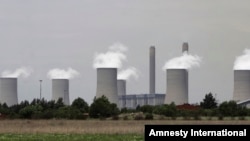South Africa’s state utility, Eskom, is battling to meet the country’s demand for power – implementing an aggressive schedule of electricity load shedding to prevent the grid from collapsing. Unreliable power supply is prompting some to become increasingly self-sufficient, producing energy in their own homes from cleaner, renewable sources. In Johannesburg, keeping the lights on has become a challenge.
Eskom, which provides South Africa with around 95% of its electricity, has said there is a high probability of almost daily controlled power cuts for the next few months to avert a total system collapse.
Years of poor maintenance, non-cost reflective tariffs and under-investment are partly to blame. Adding 7 million people to the grid since the beginning of democracy in 1994 and delays in new plant openings have also stretched its aging fleet of 27 plants to the breaking point.
Frustrated with epileptic power supply, South Africans are considering alternative power sources to reduce their dependence on the ailing grid. Renewables currently only meet about 2% of South Africa’s 30,000-megawatt needs.
Engineer Greg Ball depends on Eskom-generated power to supplement 5% of his family’s energy needs. Vast solar panels that cover the roof of his Johannesburg-home meet the rest of their demand with surplus electricity to power two electric cars.
“You think what kind of world are your kids going to grow up in. They are going to witness the end of oil …weather patterns that are extreme; they are going to experience the lot. You have to start developing an environmental conscience… I don’t want to be somebody who goes through their whole career and doing the same old, same old and dumping all these problems and issues onto my kids. If we can make just a very small difference individually, collectively it can be significant,” said Ball.
Detractors contend that coming off the grid is a luxury for those who can afford it. To equip the Ball family home with solar technology cost over $30,000. Ball argues that he has recouped the expense, saving about $7,500 annually on fuel alone.
Despite initial outlays, several solar companies in Johannesburg told VOA that recent power constraints have triggered a dramatic uptick in interest.
Ryan Beech is part of a Go Green Project for Parkhurst, an affluent Johannesburg suburb. The ambitious project aims to take all 2,000 houses off the grid and running on renewable energy by 2020.
“It’s going to be a complete going green from A to Z project. We are currently looking at all the technology out there from hydro to solar, wind. We are doing feasibility studies, looking at all possibilities. It is effectively going to be a game-changer for the country and other neighbourhoods will also follow,” said Beech.
With local governments earning approximately R25bn, or about $2 billion, a year from water and marked up electricity, there is likely to be resistance to losing 2,000 customers who pay some of the highest rates in the country.
But energy experts say South Africa must embrace cleaner energy and end its reliance on coal. As the fourth-largest coal exporting country in the world, South Africa’s coal-generated power makes it one of the world’s top carbon emitters.
Energy expert Chris Yelland argues the government should be looking at sustainable and greener energy options.
“No longer is coal a source of cheap energy for South Africa. It is also becoming a burden because of the CO2 emissions and the carbon footprint of Eskom - which is huge. There are a lot of good reasons why we should diversify away from coal and also a lot of good reasons, in my opinion, to diversify away from a single monopoly electricity supplier, especially one that is in financial trouble, operational trouble and has environmental problems because of this dependence on coal,” said Yelland.
Eskom’s financial woes could mean higher tariff costs in the future, which could encourage more people to turn to renewable energy.




